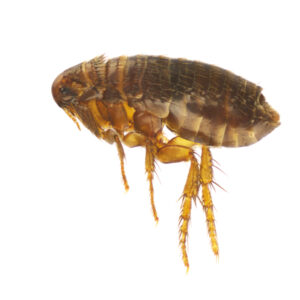
Need Help? Call Us On 0161 776 9832 For Expert Pest Control Advice On How To Identify Pest Infestations And Help Solve Your Pest Problem.
Professional Maghull Flea Treatment
 Siphonaptera is the order to which the families, genera and species of fleas belong. Britain is host to at least 62 species of these insects, all of which parasitize warm-blooded birds and mammals. Species involved in domestic flea infestation include the Cat flea (Ctenocephalides felis), the Dog flea (Ctenocephalides canis), the Rabbit flea (Spilopsyllus cuniculi), the Northern rat flea (Nosopsyllus fasciatus) and the Human flea (Pulex irritans).
Siphonaptera is the order to which the families, genera and species of fleas belong. Britain is host to at least 62 species of these insects, all of which parasitize warm-blooded birds and mammals. Species involved in domestic flea infestation include the Cat flea (Ctenocephalides felis), the Dog flea (Ctenocephalides canis), the Rabbit flea (Spilopsyllus cuniculi), the Northern rat flea (Nosopsyllus fasciatus) and the Human flea (Pulex irritans).
Routes of infestation
The most common way for fleas to be introduced into the home is by wild or domesticated animals. Pets may catch fleas through interactions with their undomesticated relatives or pick them up from the ground. Once inside, they will reproduce at an alarming rate, and a chronic flea infestation could occur in a short space of time. Established populations are difficult to control, necessitating prompt and professional Maghull flea treatment.
Holometabolism
In the course of a lifetime, fleas pass through four developmental stages in a process called holometabolism. The embryonic, larval, pupal and imaginal stages are also known as complete metamorphism. Whereas adults (imagos) are hematophagous, meaning they drink live blood, the larva scavenges on dead organic refuse. In addition, due to their different diets, larval and imaginal fleas are not competing for food.
 Imaginal fleas have slim bodies toughened by exoskeletal plates called sclerites and topped by a genal comb of backwards-facing anterior spines. Elastic resilin in the tibia and tarsus of the hind legs acts as the power source for jumping; without earth-gripping hooks on the tarsus, the flea would be incapable of transferring power downwards to launch itself into the air. In addition, multiple mouthparts are adapted for piercing skin and siphoning blood into its stomach.
Imaginal fleas have slim bodies toughened by exoskeletal plates called sclerites and topped by a genal comb of backwards-facing anterior spines. Elastic resilin in the tibia and tarsus of the hind legs acts as the power source for jumping; without earth-gripping hooks on the tarsus, the flea would be incapable of transferring power downwards to launch itself into the air. In addition, multiple mouthparts are adapted for piercing skin and siphoning blood into its stomach.
Larval fleas, hatched from their eggs, go through three phases of growth called instars. The first two instars end when the worm-like larva moults its tiny exoskeleton to acquire a new one. The last instar concludes with the larva spinning into a silk cocoon and camouflaging itself with detritus, beginning the pupal phase. The pupa is a flea metamorphosing from the larva into the image.
The holometabolic lifecycle of fleas makes them a tricky pest to control. However, professional Maghull flea treatment is successful because it tackles fleas in all developmental stages, breaking the lifecycle, and may involve a combination of mechanical and insecticide methods for maximum effectiveness. In addition, flea fumigation is one of the best treatments used in professional flea control, attacking the general flea population and leaving them with nowhere to hide.
Why hire professional Maghull flea treatment services?
Home remedies for flea infestation seldom work, perpetuating a pest problem that gets worse as the surviving insects reproduce. Professional Maghull flea treatment services have the expertise and materials to rid the property of these insects for good. However, flea fumigation treatment can be dangerous if fallen into the wrong hands, so it should be left to professional flea removal operatives to perform. The professionals will perform their job better with the full cooperation of clients.
